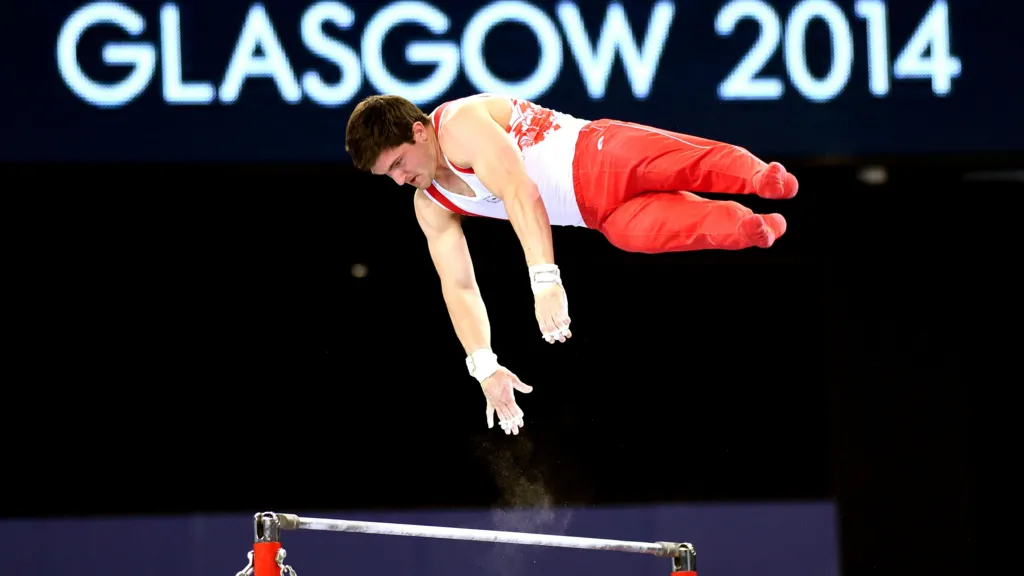The Scottish government is on the verge of agreeing a deal for Glasgow to host the Commonwealth Games in 2026.
Health Secretary Neil Gray, whose cabinet remit also covers sport, confirmed to BBC Scotland News that he is holding talks with Commonwealth Games Australia.
The Australian state of Victoria withdrew as 2026 hosts due to rising costs.
It comes after Australian authorities promised “a multi-million pound investment” to help finalise Glasgow’s offer to rescue the multi-sport event.
Health Secretary Neil Gray said it was “more likely” now that Scotland would host the 2026 games than when discussions began.
But he warned that they would be different from when Glasgow previously hosted the event.
He told BBC Radio’s Good Morning Scotland programme: “Reputationally my worry and the government’s worry has always been that there is going to be a comparison with the incredibly successful 2014 games, which by any stretch of the imagination both in terms of the performances, the spectacle that it was and the legacy, were going to be hard to match.
“But I’m hopeful that if we are able to recognise that if we are to go ahead, this is a different games, this is a smaller event.
“Fewer sports across fewer sites but with good collaboration we could see something coming forward that is still positive for Glasgow and for Scotland.”
He said discussions were ongoing and stressed that “making sure there is no financial risks to the government is critically important”.
The UK government last week assured the Scottish government that no public money would be required to stage the games.
How would the games be funded?
Earlier, Commonwealth Games Federation (CGF) president Chris Jenkins said Glasgow would deliver a “world class” Commonwealth Games and create a model for the future.
He said the Australian funding pledge would “further enhance and support” the bid to bring the games back to Scotland.
Mr Jenkins also insisted that the games would not require financial outlay by either the Scottish or UK governments.
Instead, it would be funded by a CGF investment of £100m, plus private income.
He said: “In utilising existing sporting, transport and accommodation infrastructure, and world-class venues and expertise, the compact concept would not only build on the legacy of Glasgow 2014 but would position Scotland as pioneers at the start of our journey.
“This forward-thinking, sustainable, and attractive proposition is something we are hugely passionate about as it will allow more countries to host these games in the future.
“We believe our new games model will lead the way for others to follow.”
Scaled-back event with fewer venues
The 2026 event would be scaled down after years of difficulty for the competition.
It would feature between 10 and 13 sports, compared to 18 in 2014.
Last week, it emerged that the UK government offered £2.3m to help cover safety and security costs associated with the privately-funded event, but asked the Scottish government to match that figure.
Neil Gray previously expressed concerns about the “reputational risk and financial risk” of a bid and stressed it would not be a replica of the 2014 games.
That edition featured an opening ceremony at Celtic Park, as well as athletics at Hampden, which also hosted the closing ceremony.
But to save money only four venues would be used in 2026 – including Scotstoun Stadium and the Tollcross International Swimming Centre.
Commonwealth Games Australia last week offered to bridge any financial shortfall.
They have told both their Scottish counterparts and the Scottish government that they are prepared to invest some of the compensation they received when the Australian state of Victoria cancelled its plans.
Commonwealth Games Australia’s president Ben Houston said: “We appreciate that the model is different and that that creates perceived financial and reputational challenges, but we have every confidence in the model.”
Commonwealth Games Scotland – who are behind the Glasgow bid – have already welcomed the offer.
In a statement released last week they said the Australians’ “willingness to invest, to further alleviate concerns of perceived financial and reputational risk, shows the high regard on which our cost-effective proposal is held within the global sport and events community.”


